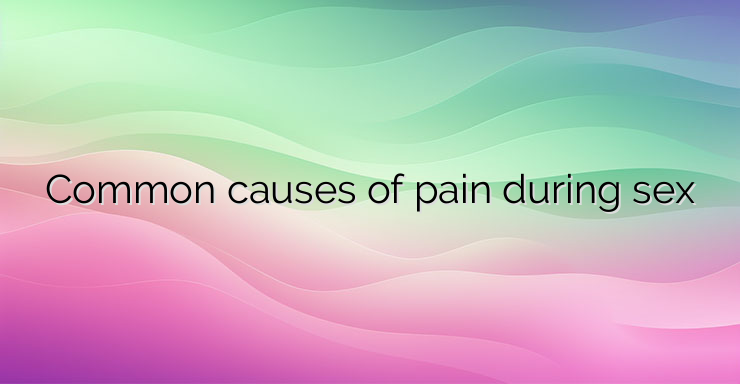Pain during sex can be caused by a number of underlying conditions that differ between the two sexes. In a 2016 British study published in the Journal of Obstetrics and Gynaecology, one in 10 women experienced severe pain and discomfort during intimate intercourse. Accepting this as normal or because they are ashamed, these women do not seek medical help. Such statistics for the stronger sex are not yet known, but in all people this condition is called dyspareunia – painful intercourse. What are the most common causes in women? Infections come first. They most often affect the labia, vagina and urinary tract. Fungal infections, chlamydia and vaginal trichomonas are regular culprits – the pain is moderate with them. Stronger pains can cause inflammation of the cervix, fallopian tubes and ovaries. After them, the leading causes are cancers of the reproductive tract and tissue damage as a result of trauma to the pelvis, undergone surgical interventions or childbirth. Anatomical variations are strictly individual – remnants of the hymen, prolapse of the uterus or vagina – they all lead to severe discomfort and can even lead to avoidance of sexual activity. Hormonal activity is another leading concern. Conditions such as endometriosis and adenomyosis affect the inner lining of the uterus and require medical intervention. The lack of female sex hormone – estrogen, on the other hand, can lead to insufficient moistening of the vagina and cause strong tissue friction during penetration – in addition to pain, this can also lead to tissue tears that increase the risk of developing sexually transmitted diseases. diseases. NEWS_MORE_BOX In men, pain is most often experienced in the testicles or glans, mostly after ejaculation. Infections of the prostate, bladder and vas deferens lead to severe, burning pain and itching after ejaculation. In inflammation of the bladder, intense pain was experienced during ejaculation. In over 50% of cases of dyspareunia in men, the Frenulum breve condition is responsible. Frenulum or “bridle” is the name of the elastic tissue, under the head of the penis, which connects it to the movable foreskin – the foreskin. It may be too short or be torn during particularly vigorous intercourse. If either condition is present, it prevents the foreskin from moving along the length of the penis. In addition to being painful, this condition makes it difficult to insert and retain a condom. In younger people, a possible reason is also the lack of experience and haste of movements. In any case, after pain during sex, consultation with a specialist urologist, gynecologist or sexologist is desirable.


Leave a Reply